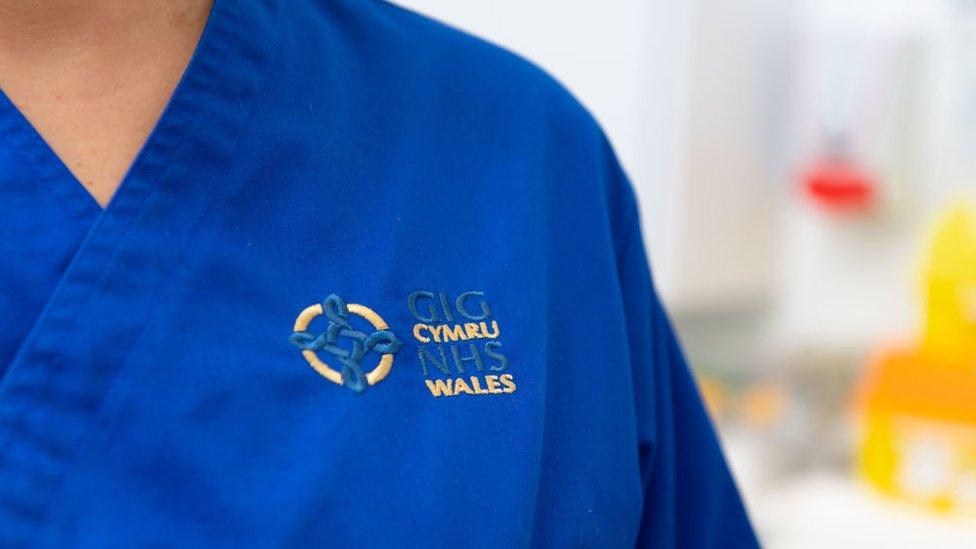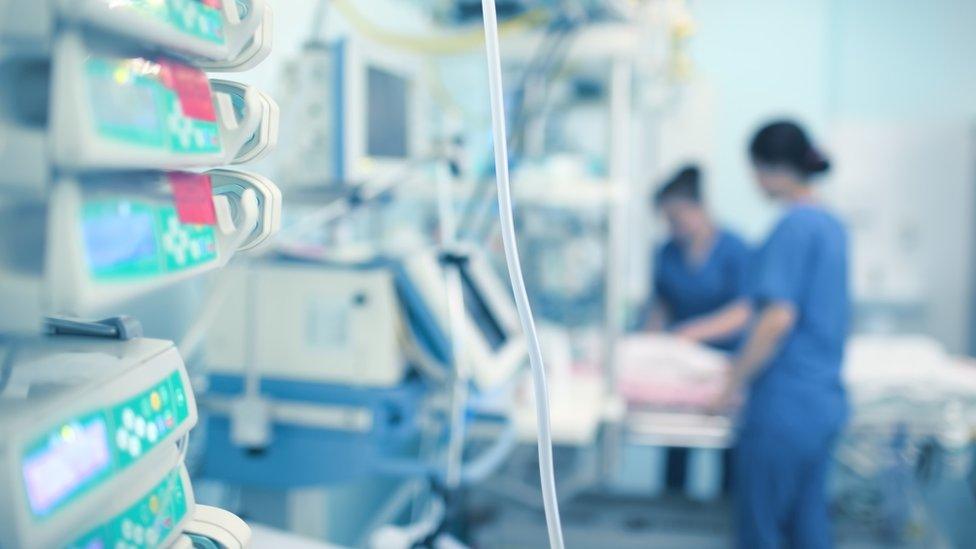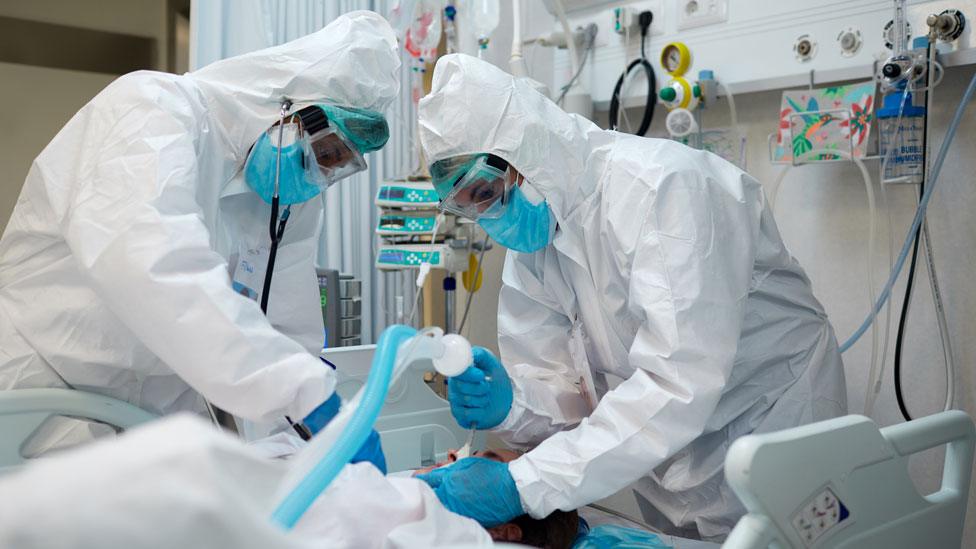Covid: NHS faces 'difficult choices', says health minister
- Published

The new options could see outpatient clinics close and non-urgent cancer treatment cancelled
'Difficult choices' will have to be made by the NHS this winter, the health minister has admitted.
Vaughan Gething said Covid is spreading at an "alarming rate" as latest figures show a record number of patients in Welsh hospitals with Covid-19.
In a written statement, the minister set out a range of options which local health boards could implement if the pressures continue to rise.
These include postponing outpatient and non-urgent cancer treatments.
Other options include closing community dental services and postponing other planned treatments.
By issuing a written statement, the health minister has given permission for health boards to take these actions if there is a risk of becoming overwhelmed in the coming weeks - and so that staff can be redeployed to prioritise emergency care.
In March, the Welsh Government suspended almost all non-emergency care in anticipation of the first Covid wave.
During the second wave, the NHS has been trying to keep as many of those services going in so far as possible.
However some non-urgent treatments may soon be put on hold.
Vaughan Gething said: "We are collectively growing increasingly concerned about the potential risk of harm to patients who require access to essential healthcare services.
"The framework of actions for local consideration by NHS organisations is intended to mitigate the potential risk of harm in the system.
"These actions will ease the pressures on the NHS by allowing for services and beds to be reallocated and for staff to be redeployed to priority areas.
"As well as taking individual actions set within a local context, I also expect NHS organizations to work together to ensure the resilience of the emergency response beyond their own boundaries."
The Welsh Ambulance Service is asking for the public to "play their part" and only call 999 or attend A&E if they are seriously sick or injured.
Chief Executive Jason Killens said: "Winter is our busiest period, and this year we also have a global pandemic to contend with, and now rising rates of infection in our communities.
"We need to manage people's expectations about what service they'll get if they call for an ambulance."

Trade unions said staff are 'exhausted'
In a joint statement unions representing, doctors, nurses and other front-line health care staff said they have significant concerns about the impact the five-day relaxation of rules over the Christmas period will have on infection rates and the NHS's ability to cope.
They said staff are 'beyond exhausted' and a potential third wave of the virus could prove too much for staff.
The Joint Health Trade Unions said: "If pressure on the service continues to increase, we must be realistic about what it will mean for patients in hospitals where every bed is full - making treatment difficult and waiting lists longer.
"We are not seeking to change the decision that has been made about Christmas, but we have a responsibility to help minimise any impact on the health service and its staff and patients.
"Staff are truly exhausted, mentally and physically, and they are extremely concerned about what January will bring.
"All we ask, as we have done throughout the pandemic, is that when you make your choices about Christmas, you take the risk seriously and minimise contact as much as possible. Covid-19 has not gone away."
However the Wales Cancer Alliance said cancelling of non-urgent cancer treatment was worrying time for patients.
Tenovus Cancer Care charity has urged the Welsh Government to explore "all options" to avoid delays to diagnostic and treatment.
Judi Rhys, chief executive, said: "We risk swapping COVID-19 deaths avoided today for unnecessary cancer deaths in a few years' time."
- Published10 December 2020

- Published10 December 2020
